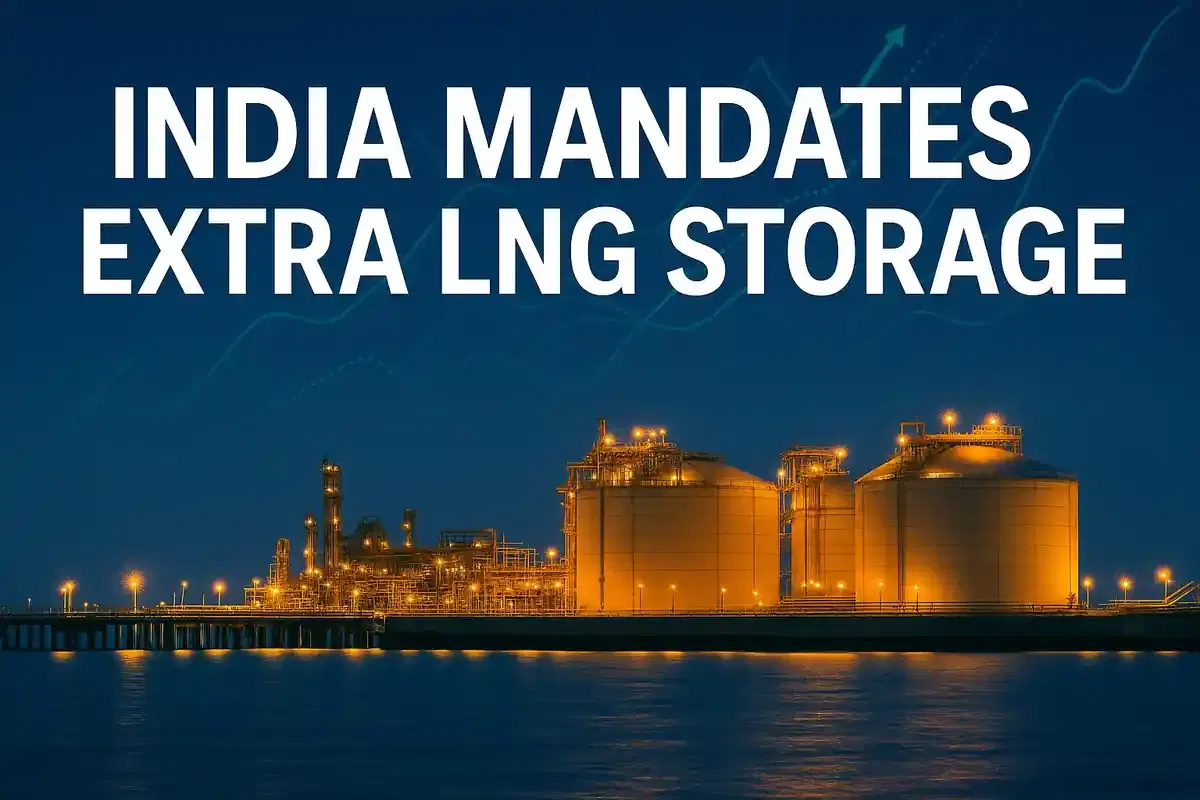India Mandates 10% Extra LNG Storage at Import Terminals for Emergency Reserves
Energy
|
28th October 2025, 10:08 AM

▶
Short Description :
Detailed Coverage :
A draft proposal by India's oil ministry suggests amending the registration rules for LNG terminals under the Petroleum and Natural Gas Regulatory Board (PNGRB). The key change mandates that entities seeking to operate an LNG terminal must also possess a credible plan for maintaining storage capacity that is 10% higher than required for daily operations. This additional capacity will be made available to the central government when needed, establishing a strategic gas reserve system.
Impact: This policy aims to enhance India's energy security by creating a cost-effective buffer against supply or price shocks. It leverages existing import terminal infrastructure, avoiding the high costs associated with building dedicated underground storage or using depleted gas fields. This could lead to greater price stability and supply reliability for natural gas. However, it might impose additional operational costs on terminal operators and requires clarification from PNGRB on how this shared capacity will be managed and allocated. Rating: 7/10.
Difficult Terms: Liquefied Natural Gas (LNG): Natural gas that has been cooled down to a liquid state at -162 degrees Celsius (-260 degrees Fahrenheit) for easier storage and transportation. Petroleum and Natural Gas Regulatory Board (PNGRB): An autonomous statutory body established by the Indian government to regulate the country's oil and gas sector, including pricing, infrastructure, and competition. Strategic gas reserve system: A stockpile of natural gas kept in reserve to ensure supply continuity during national emergencies, natural disasters, or significant market disruptions. Common-carrier facility: Infrastructure (like pipelines or storage tanks) that must be open for use by any party, usually under regulated terms and conditions, rather than being exclusively for the owner's use. ONGC (Oil and Natural Gas Corporation): India's largest crude oil and natural gas company, engaged in exploration, development, and production of oil and gas resources. Oil India: A state-owned company involved in the exploration, development, and production of crude oil and natural gas in India. GAIL (Gas Authority of India Limited): India's principal gas transmission and marketing company, also involved in gas processing and petrochemicals. Million tonnes per annum (mtpa): A unit of measurement for throughput capacity, signifying millions of metric tons processed or transported per year. Net worth: The value of a company's assets minus its liabilities, often used as an indicator of financial health.